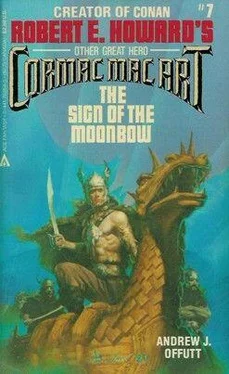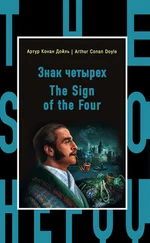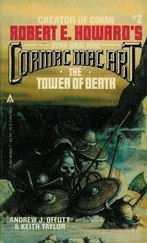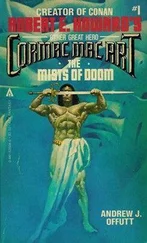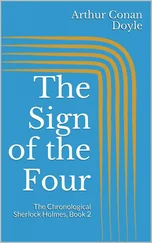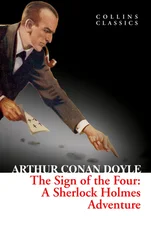Andrew Offutt - The Sign of the Moonbow
Здесь есть возможность читать онлайн «Andrew Offutt - The Sign of the Moonbow» весь текст электронной книги совершенно бесплатно (целиком полную версию без сокращений). В некоторых случаях можно слушать аудио, скачать через торрент в формате fb2 и присутствует краткое содержание. Жанр: Фэнтези, на английском языке. Описание произведения, (предисловие) а так же отзывы посетителей доступны на портале библиотеки ЛибКат.
- Название:The Sign of the Moonbow
- Автор:
- Жанр:
- Год:неизвестен
- ISBN:нет данных
- Рейтинг книги:3 / 5. Голосов: 1
-
Избранное:Добавить в избранное
- Отзывы:
-
Ваша оценка:
- 60
- 1
- 2
- 3
- 4
- 5
The Sign of the Moonbow: краткое содержание, описание и аннотация
Предлагаем к чтению аннотацию, описание, краткое содержание или предисловие (зависит от того, что написал сам автор книги «The Sign of the Moonbow»). Если вы не нашли необходимую информацию о книге — напишите в комментариях, мы постараемся отыскать её.
The Sign of the Moonbow — читать онлайн бесплатно полную книгу (весь текст) целиком
Ниже представлен текст книги, разбитый по страницам. Система сохранения места последней прочитанной страницы, позволяет с удобством читать онлайн бесплатно книгу «The Sign of the Moonbow», без необходимости каждый раз заново искать на чём Вы остановились. Поставьте закладку, и сможете в любой момент перейти на страницу, на которой закончили чтение.
Интервал:
Закладка:
Cormac was obviously considering, though it was obvious there was nothing to be gained by raising argument. And true, in the decision he had announced, Cormac had felt much alone; egregiously alone. He knew loneliness, alone-ness well; he’d shared his life with it as other men with an ever-present dog. He could bear it. And… he’d be passing glad for the company of his longtime comrade.
“It is a matter of which Doorway we seek, then,” he said in a low voice, and they began to think and to discuss that problem, for Cathbadh had named them a choice of two locations.
The twin hills called the Breasts of Danu indeed resembled the mounded bosom of a woman reclining supine. They stretched long across the land but eighteen of the Roman miles northeast of the River Kenmare, which emptied into the sea down in the southwest of Eirrin. There they could go ashore, without danger of recognition.
The hill of Bri Leith was well north, sixty miles west of Tara Hill and south of Tailite. From Tara they must cross three rivers, the Boyne and the Deel and the Inny-and hills, and the bogs as well, or skirt them. It was Bas who then suggested that they could sail Quester down south of Eirrin, enter the Shannon and make their way up it to Lough Ree; thence up its length and onto the broad Shannon again, until they could make landing but a few miles east of Bri Leith and Long-ford.
Problems attended either choice. At last it was Cormac who decided. In manner most positive he stated what they would do. For gladness was on him to be positive about something, in this new life forced on him by a relentless enemy who hated him only for the man he’d been in a time incredibly long, long gone by.
“We will port at Balbriggan, but twenty or so miles from Tara. Ye others will go directly there, and to the home of your cousin Aine, Samaire. I and Wulfhere will skirt fair Tara, calling ourselves by other names-and taking Thulsa Doom to Long-ford, and the Doorway at Slieve Bri Leith .”
Fast on the heels of his words came another voice. “Release me, Cormac mac Art, release me now, and I renounce all vengeance on ye-and these your friends.”
Cormac stared at the death’s head, and he was tempted.
“Join me! Rule this world!”
“Thulsa Doom, no man but would be a fool to place faith in any such promise from you. And ye’ll not be ruling this world, mage. No. It’s no release ye’ll be having of me, whilst I live.”
Brian saw a matter for laughter, and seized on it, for in all wakes the time comes for gaiety. “Sure and it’s a sea of interesting looks ye three will be receiving, moving through our green Eirrin and one of ye with no face!”
Cormac showed him the pale reflection of a smile, and that seen dimly as in an old and filthy mirror of weathered bronze.
“No, Brian. For Thulsa Doom can be assuming any form he wishes-is it not true, mage?”
“Aye. The form of any person I have seen.”
Cormac nodded. “Then it’s a decent visage ye’ll wear in Meath of Eirrin, monster, not that hideous shining skull! It’s green your robe will be, and the symbols of Behl and Crom on ye-for I and Wulfhere will travel respectably, in company of what all will see as a druid!”
PART TWO
Chapter Eight:
Into the Earth
“Eirrin,” Wulfhere Skullsplitter said, “is wet . The weather’s less damp asea.”
“It’s a healthy lot we of Eirrin are, meaning the weather agrees with us,” Cormac told the grumbling Dane. He waved a hand. Misty grey-blue sky; green plain sweeping into deep woods with multicoloured leaves, green hill patching into brown; distant blue mountains.
“For sea-dogs,” the Dane retorted, “mayhap Eirrin is healthful.” He looked about. “Aye, and mountains ever in view, no matter which way one turns. This land has a million rivers, a million foul dark bogs that give off worse air than the grave, and two million mountains.”
“Forget not the clouds ye’ve grumbled of,” Cormac said, a bit wearily.
“Ah! The clouds-they rush about overhead driven by ever-changing air currents like ants from a kicked hill. And… it’s ever wet .”
“Misty,” Cormac said.
“Wet.”
Cormac mac Art compressed his lips. He knew it was not the weather or the scenery of Eirrin that had Wulfhere a-grumble so. Both men were weary. They’d been at the hill of Bri Leith for two days, and now they trudged, rather than strode. Worse, because of the autumn chill and the dampness and Wulfhere’s nagging at Cormac about his native land-even unto the clouds overhead-they had been here two, nights. Despair hovered over them like a vulture.
They had walked. And walked. Up the hill and down the hill. Around it and around it, wading through gorse and daggerbushes and furze. There was no sense in splitting up in their search for the Doorway to the Danans’ subterrene demesne; Wulfhere would not find it. He could not. The Doorways, Cathbadh had said, would reveal themselves to him who wore the Sign of the Moonbow-and only to him. Only to Cormac, then. Otherwise the entrances were invisible, the protection of the Tuatha de Danann within the earth from those who had displaced them and lived on its surface. The two men must remain together. They roamed together, and Wulfhere grumbled aloud.
Cormac remained outwardly taciturn… and grumbled in his heart.
With them always came the apparent druid who
“Bas”; twice Wulfhere had, and then launched into a vicious hailstorm of curses. That had put thought on the Gael.
“An any should separate us, Cormac told Thulsa Doom, “it is my command that ye resume your own worse than ugly form at once. The robe and form of Cutha Atheldane, and the skull that is all we know of your face. Ye be understanding?”
“I understand.”
“And ye’ll obey, though we’ve separated and I not there to order or see?”
“Aye. I must.”
And they trudged on.
“An island,” Wulfhere said, “is a piece of land afloat but anchored on the bosom of the sea. Aye, and completely surrounded by the water.”
Cormac said nothing. They trudged.
After a time he could not bear the silence that followed the Dane’s remark, and he said, “Aye.”
“Eirrin,” Wulfhere said with pleasure, “with all its rivers and lochs and fens and thrice-damned bogs, and with its mountains all along the coast so that the whole land slopes inward to the center. Eirrin is water, completely surrounded by land.”
“And Loch-linn of the Danes is perfection itself,” Cormac said, hanging onto his temper only with effort. “Which is why ye left so long agone and never return. Come, blood-brother, it’s only weary of this searching ye’re after being. There’s more grass under my two feet this instant than in all of Loch-linn… and more moisture in a lungful of the air of Britain than in all Eirrin’s sweet air!”
Wulfhere only sighed, without reply. The other man was right; in this sort of situation, he’d have muttered darkly even about the paradisic Isle of Danu. He sighed anew. With all its anxious womenfolk… he should have remained there!
They walked slowly along the hillside, stumping, one leg long and the other short, for it was easier than walking up and down, up and down. Though their movements were not quite listless, they were hardly energetic. Nor came this from lack of sleep. Though the nights were cold and heavied with the added chill of dampness and their limbs and backs complained at morningtide, both men slept well enough. The lives they’d led had hardly accustomed them to soft beds and the warmth of night-fires. If ever men could sleep anywhere, under any conditions, and indeed nigh at any time at will, the Wolf and the Splitter of Skulls were among their number.
Читать дальшеИнтервал:
Закладка:
Похожие книги на «The Sign of the Moonbow»
Представляем Вашему вниманию похожие книги на «The Sign of the Moonbow» списком для выбора. Мы отобрали схожую по названию и смыслу литературу в надежде предоставить читателям больше вариантов отыскать новые, интересные, ещё непрочитанные произведения.
Обсуждение, отзывы о книге «The Sign of the Moonbow» и просто собственные мнения читателей. Оставьте ваши комментарии, напишите, что Вы думаете о произведении, его смысле или главных героях. Укажите что конкретно понравилось, а что нет, и почему Вы так считаете.
